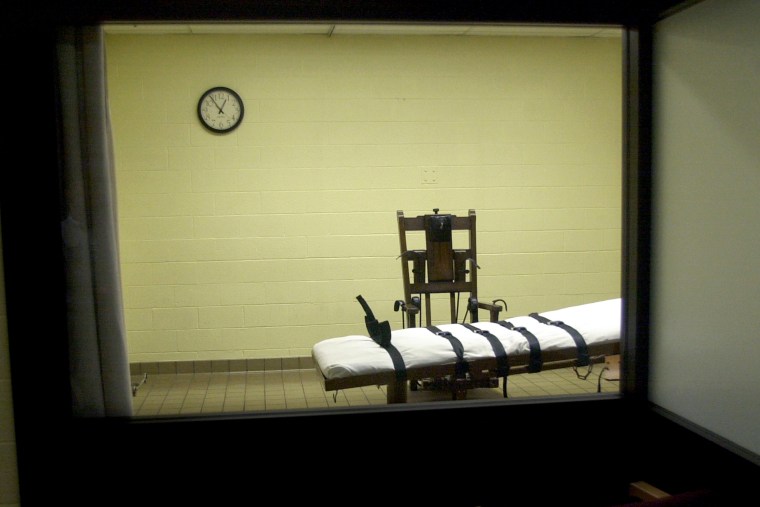A federal judge on Monday refused to the delay the scheduled execution of an Ohio man convicted of raping and murdering a 22-year-old pregnant woman, even after the inmate’s attorneys argued that the never-before-used combination of lethal injection drugs could cause “agony and terror.”
Dennis McGuire, 53, is set to become the first person in the United States to receive a lethal combination of the sedative midazolam and the painkiller hydromorphone. Though the drug combination has been a backup in Ohio’s execution process since 2009, the state’s department of rehabilitation and correction has typically used the drug pentobarbital for lethal injections. Due to shortages, however, the state now plans on using its two-drug alternate for McGuire’s execution, which is scheduled for Thursday.
Speaking on Friday before U.S. District Judge Gregory Frost, a George W. Bush appointee, McGuire’s attorneys argued that the new method of lethal injection would not effectively sedate their client, causing him to suffer a phenomenon known as “air hunger,” or the feeling of suffocation. Because McGuire has sleep apnea, resulting in a difficulty to breathe while asleep, the chances of his experiencing “agony and terror” during execution would be even greater, his lawyers alleged.
Ohio attorneys submitted rebuttal testimony on Sunday, calling on Dr. Mark Dershwitz to state that when used experimentally, the drugs have not caused volunteers to experience difficulty breathing.
“They don’t care,” said Dershwitz in a December deposition included in the state’s response to the motion for a stay.
In his order Monday, Frost declined to answer the question of whether Ohio’s lethal injection protocol violated McGuire’s legal protections under the Eighth Amendment. Rather, his decision to deny a stay was based on McGuire’s failure to meet his burden of proof that a stay was warranted.
“This Court does not conclusively hold here that Ohio’s method of execution practices are constitutional or unconstitutional,” wrote Frost in his opinion. “Today’s decision only recognizes that based on all of the record evidence, McGuire has not met his burden of persuading the Court that he is substantially likely to prove unconstitutionality and prevail in this litigation.”
McGuire’s attorneys said in a statement that they were “disappointed” in the ruling, but that they appreciated the court’s recognition “that significant concerns still remain about what will happen when the state of Ohio uses its new execution protocol.”
McGuire has a separate appeal pending with the U.S. Supreme Court, asking it to stop the execution on the grounds that a jury never heard details of his troubled childhood, which could have prevented him from receiving the death penalty. McGuire suffers from impaired brain function that makes him act impulsively due to years of mental, sexual, and physical abuse, his lawyers argue. He was also dangerously malnourished as a child and frequently had to steal food for himself and his sister.
